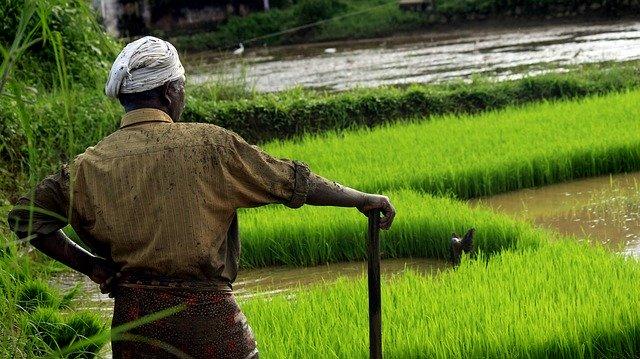
By Tara Nair
The impact of the nation-wide lockdown on the agriculture and other food producing sectors is yet to be fully unravelled. Stories have started coming in from some of the States, where farmers of perishable horticulture crops are faced with threat of loss and indebtedness as they cannot reach market places. As for other crops, many regions are getting ready for the rabi harvest. A few measures including exempting farming and allied activities from the lockdown have been announced by the States to ensure that rabi harvesting continues uninterrupted.
There is no gainsaying that practical solutions are needed to address the immediate problems faced by farmers. The question, however, is whether these measures can be leveraged strategically to transform the current institutional environment around farming and the precarious workforce that depends on it for survival. Let’s take the peculiar case of sharecropping labour or the ‘bhagiya mazdoori’ system in North Gujarat. This is a typical labour arrangement where adivasi workers, mostly from across the Rajasthan border are engaged as workers by large farmers under crop-sharing informal contracts with an inbuilt component of wage advance. The share contract obligates them to bear all the costs relating to labour, while they get one fifth or one fourth of the harvest as wages. Most of the crops in this region are labour intensive (like cotton) and, hence, involve relatively higher share of human labour costs (about 30 percent of total cost in the case of cotton). After accounting for the wage and the cost of labour, the workers often end up returning home with almost nothing. Thus, the ‘bhagiya mazdoori’ system has come to be associated with perpetual poverty and indebtedness of adivasi labour households.
Under the ‘bhagiya mazdoori’ labour arrangement in North Gujarat, adivasi workers from across the Rajasthan border work on large farmers under crop-sharing informal contracts with an inbuilt component of wage advance. The share contract obligates them to bear all the costs relating to labour, while they get one fifth or one fourth of the harvest as wages. The workers often end up returning home with almost nothing. Under the lockdown, how will they be paid if at all?
For thousands of ‘bhagiya’ men and women workers from the villages of the Kotda block of Rajasthan, the current lockdown is the most ill-timed. The result of their labour is lying across the border, ready to be realised. And yet, they cannot cross the border to claim their share. Some are held up in the farms on the other side, while their families are in Rajasthan. The daily wage workers who routinely commute between Kotda and the neighbouring Gujarat villages are left with no choice, but not to work and wait for help from the State.
An ongoing study among the adivasi workers on both the Gujarat and Rajasthan sides of the border reveals that given a choice they prefer daily wage employment to the share-cropping labour system as they expect the former to fetch them larger cash income. This is not to say that finding daily wage work is hassle-free, especially for women wage workers, who work continuously for 15 hours a day or more, balancing farm work and household chores. They travel long distances by jeep spending a good part of their earnings on transport. Paradoxically, all this is happening at a time when studies claim that agricultural wages have gone up in the face of labour shortage. Cut
What would be the prospects of the workers trapped in a sharecropping relationship once the lockdown is over? Will they be paid their wage dues? The farmers will have reasons to delay or deny payment to the workers. Who will ensure that the farmers will pay them at least the minimum wages? Who will they turn to in case they have any complaints?
Two labour rights organisations (Aajeevika Bureau and Kotda Adivasi Sansthan) working for migrant workers launched an initiative as much as a decade ago in Northern Gujarat to improve the terms of the ‘bhagiya mazdoori’ system. Written contracts, transparent accounting and an increase in worker share to a third have been the key issues addressed by the initiative. Despite their radical intent, these initiatives have had only mixed success – farmers have a strong feudal hold on the adivasi sharecroppers because of the advances they offer. The workers are difficult to organise as they are highly dispersed over a vast area. State policy has largely been indifferent to the conditions of farm workers. These conditions have resulted in deepening impoverishment of sharecroppers, trapping them perpetually in a situation similar to bonded and indentured workers.
State policy has largely been indifferent to the conditions of farm workers. These conditions have resulted in deepening impoverishment of sharecroppers, trapping them perpetually in a situation similar to bonded and indentured workers.
The current crisis is an opportune moment to revisit these solutions. For instance, the State could enforce formal work arrangements between farmers and sharecroppers in order to reduce the repeated loss of fair share or wages to the workers. The bailout packages for farmers must not overlook wage assurances to farm labour priced at least at minimum wage levels. Legitimising farm workers collectives to represent workers issues will ensure some parity with farmers who are so well organised economically and politically. Expanding the coverage of MGNREGA widely to include smaller and scattered villages in blocks like Kotda is also very important at this juncture. It can both create employment opportunities and regenerate the local productive resources, which in turn could help households gainfully employ themselves in farming activities within the villages, and avoid desperate migration to some extent. This may also encourage farmers to look for innovative alternatives to manual labour.
(Dr Tara Nair, a Professor at the Gujarat Institute of Development Research, works on issues of rural poverty, livelihoods and microfinance)


